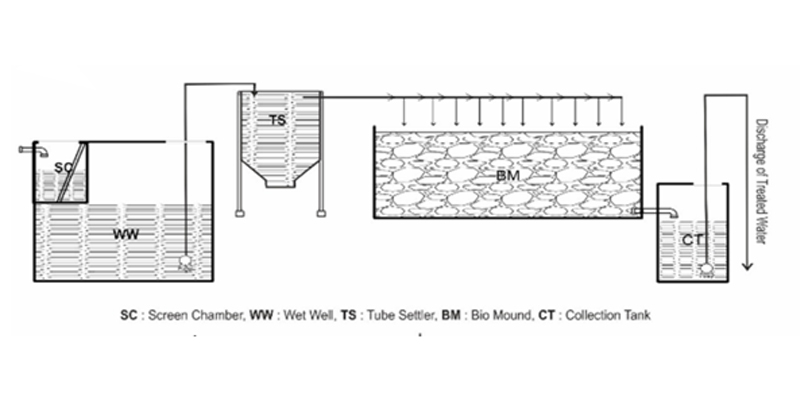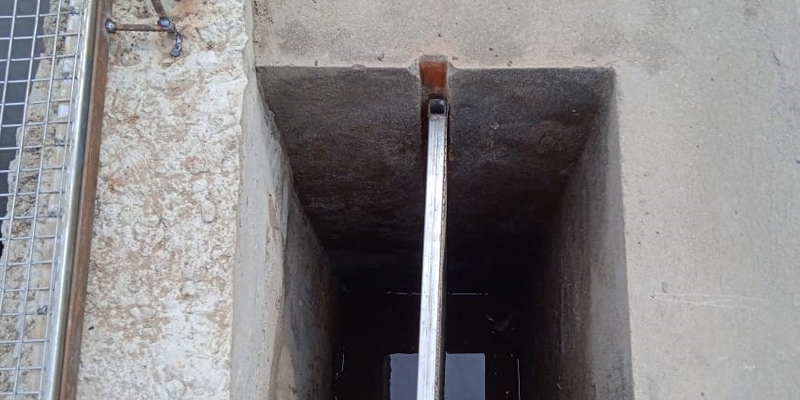
Inadequate access to clean water has far-reaching consequences for households in rural India. While the Jal Jeevan Mission has indeed led to a manifold increase in access to water for these households, this boon comes with its own set of challenges. The most significant of these is the lack of proper wastewater management, which not only results in waterborne diseases running rampant among the communities, but also pollutes the water bodies and the environment at large. Currently, a mere 1-2% of wastewater in villages is recycled and reused. Conventional wastewater treatment methods, however, are not feasible for villagers as they are expensive and require constant maintenance. The potential for simple and cost-effective treatment methods is, therefore, immense.
A ray of hope
Developed by IIT Bombay and licensed by Vision Earth Care Private Limited, Continuous Advanced Multiscale System using Soil Bio-Technology (CAMuS-SBT) is a sustainable and cost-effective wastewater management technique, based on the ‘trickling filter’ mechanism. This process relies on the natural biological and chemical reactions occurring within the soil, such as respiration, mineral weathering, and photosynthesis, to cleanse the water of suspended solids as well as organic and inorganic content.
With technology support from Vision Earth Care Limited, Vijayavahini Charitable Foundation, an associate organisation of Tata Trusts is implementing a pilot SBT setup in Laxmipuram village, located in Chodavaram, Anakapalli district, Andhra Pradesh. This intervention is part of the Water, Sanitation, and Hygiene (WaSH) programme of Tata Trusts, which aims to improve access to sanitation and hygiene facilities for underserved communities. The treated water obtained through SBT can be utilised for a range of non-contact purposes, including washing, gardening, construction, and even in toilets. SBT is suitable for wastewater capacities ranging from as low as 1 KLD to as high as 10 MLD. The system can be easily operated even by unskilled labour and works even when power supply is unreliable, making it ideal for use in rural India.
The treated wastewater also meets the discharge standards laid down by the National Green Tribunal (NGT) and the Central Pollution Control Board (CPCB) with respect to critical parameters such as biochemical oxygen demand (BOD), chemical oxygen demand (COD), and total suspended solids (TSS) levels.
A sustainable water treatment solution
With SBT, 100% of greywater can be treated and recycled, thereby reducing dependence on freshwater. Capital expenditure is highly economical, at just under Rs40,000 per KLD, which would be covered by the Gram Panchayat, while operational costs are minimal to nil. SBT also consumes relatively low levels of energy, with total consumption averaging approximately 120-130 kWh/MLD. Moreover, since the system relies entirely on naturally available materials such as sand, red bricks, gravel, and microorganisms, it generates zero carbon emissions. In fact, if this process scales up, SBT may end up generating carbon credits over time!
Believing in the power of community involvement, Vijayavahini Charitable Foundation with support from the Tata Trusts conducted several awareness programmes to educate the residents of Laxmipuram about the benefits of SBT. They also trained them to manage and maintain the system, ensuring its long-term sustainability. Plans are now underway to introduce SBT to several more rural and peri-urban areas across India.








